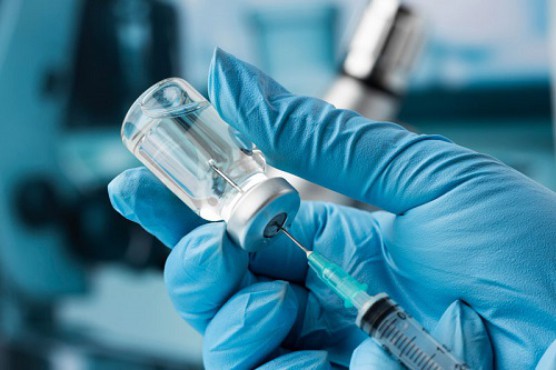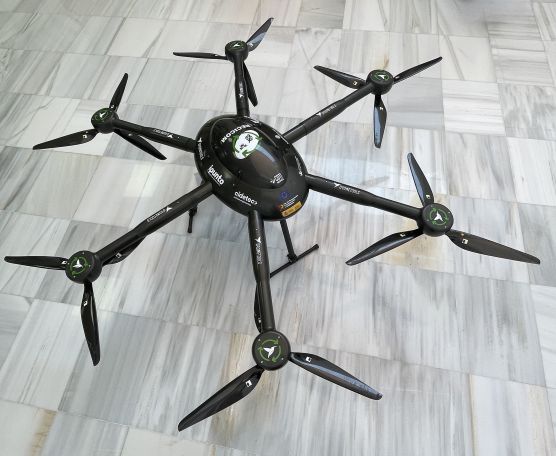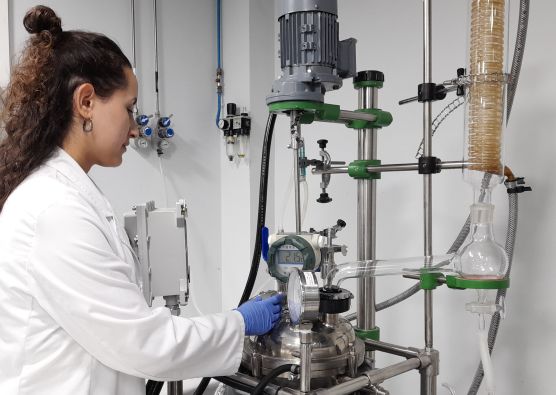Five million euros to develop innovative vaccines

The SPIDVAC consortium, in which CIC bioGUNE participates, receives 5 million euros to develop innovative vaccines
Thirteen European and African research centres will develop innovative vaccines against African horse sickness, peste des petits ruminants and foot-and-mouth disease
They will evaluate the capabilities of the vaccines in vitro, demonstrate the safety and efficacy of candidate vaccines in small animal models and target species, and develop companion diagnostics to reliably differentiate between infected and vaccinated animals
 The SPIDVAC consortium, in which CIC bioGUNE -a member of the Basque Research & Technology Alliance, BRTA- participates, has received 5 million euros in the framework of the EU-Horizon Europe programme to develop innovative vaccines against African horse sickness, peste des petits ruminants and foot-and-mouth disease viruses over the next 42 months.
The SPIDVAC consortium, in which CIC bioGUNE -a member of the Basque Research & Technology Alliance, BRTA- participates, has received 5 million euros in the framework of the EU-Horizon Europe programme to develop innovative vaccines against African horse sickness, peste des petits ruminants and foot-and-mouth disease viruses over the next 42 months.
The SPIDVAC (Safe Priority Infectious Diseases VACcines) consortium consists of 13 research centres from Germany, France, Spain, the UK, the Netherlands, South Africa and Senegal, which will develop pioneering vaccines, evaluate their in vitro capabilities, demonstrate their safety and efficacy in animal models and develop diagnostics to reliably differentiate between infected and vaccinated animals.
The past three years have highlighted the importance of research in virology and immunology. Preparedness for action when pandemics strike is based on years of basic knowledge accumulated over time and the constant development of technology. The study of viruses that infect humans and/or animals, whether from a basic, clinical or translational point of view, benefits our society, allowing the development of new intervention strategies.
Current vaccines against African horse sickness, peste des petits ruminants and foot and mouth disease viruses have critical shortcomings that leave the European Union vulnerable to these transboundary Category A animal diseases, and control strategies that rely solely on slaughter are increasingly rejected by the public. The risk of introduction of African horse sickness, peste des petits ruminants and foot and mouth disease into Europe is growing, driven by climate change, global trade and long-distance travel.
SPIDVAC will also increase knowledge on mechanisms of infection, virulence and immunity and study vaccine acceptability. The consortium includes industry partners for veterinary vaccines and diagnostic tools, which will ensure technological readiness and market introduction. This will help policy makers, veterinary services and industry to reduce the burden of infectious animal diseases, contribute to a sustainable livestock industry and promote animal and public health from farm to fork.
The leader of the SPIDVAC project at CIC bioGUNE is Nicola GA Abrescia, research professor at Ikerbasque and head of the Virus Structure and Cell Biology Laboratory (https://www.cicbiogune.es/people/nabrescia). Abrescia’s laboratory will focus on structural research on Multimeric Protein Scaffold Particle (MPSP) and Disabled Infectious Single Animal (DISA) vaccines. The study of antigen presentation and multivalency of MPSP particle-based vaccines, as well as capsid assembly for DISA vaccines, will guide vaccine design and optimisation. To do so, Dr. Abrescia will use cryo-EM and cryo-ET techniques taking advantage of the infrastructure available at CIC bioGUNE and the Basque Resource for Electron Microscopy (BREM).




